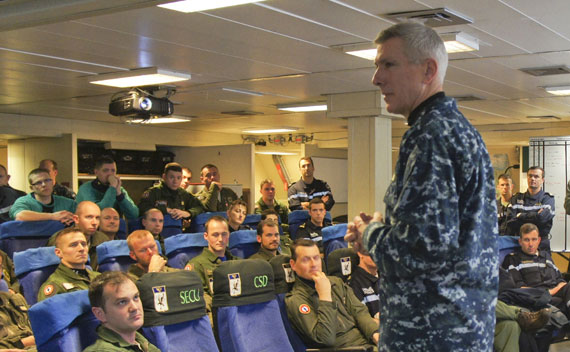Is Obama Pursuing Stealth Regime Change in Libya?
More on:

President Obama sent mixed signals in his address to the nation last night. On the one hand, he went out of his way to portray Operation Odyssey Dawn as a humanitarian mission. He insisted that “our military mission is narrowly focused on saving lives” and that while we seek Qaddafi’s ouster we are pursuing that goal “though non-military means.”
Yet Obama seemed to be saying the opposite when he described the specifics of Operation Odyssey Dawn in his speech. He noted that “we hit Gadhafi’s troops in neighboring Ajdabiya, allowing the opposition to drive them out” and that “our coalition will keep the pressure on Gadhafi’s remaining forces.” These steps sound more like an effort to use U.S. and allied air power to help Libyan rebels drive Qaddafi from power. They certainly go well beyond what is needed to protect Libyan civilians from imminent attack.
So which is it?
To judge by Eric Schmitt’s story in today’s New York Times, regime change has become the unstated goal of Operation Odyssey Dawn even if the White House won’t say it. The original no-fly zone has morphed into a no-drive zone, that is, an all-out assault on the Libyan military. Tank killing planes like the A-10 Warthog and the AC-130 gunship have now joined the fray, and U.S. military intelligence has launched psychological operations against Libyan forces. As former Air Force chief of staff Gen. John P. Jumper told Eric Schmitt, we are trying to break the Libyan military:
Certainly, the implied though not stated goal here is that the Libyan Army will decide they’re fighting for a losing cause…You’re probably dealing with a force that may not be totally motivated to continue this for the long haul.
I hope it works and works quickly. Not because I think that Operation Odyssey Dawn was well-conceived or that it is the right “kinetic military action” at the right time. It wasn’t and isn’t. But we are where we are. Qaddafi’s ouster would present Washington with a whole new slate of problems—what kind of government comes next and whether it could effectively control the country top the list. But these problems are preferable to the ones that would arise if Qaddafi holds onto power and waits out the west.
Nonetheless, the gap between how the president describes his policies and what those policies are is troubling. I don’t mean to sound Pollyannaish. I’ve worked with and read enough realists to understand that international diplomacy sometimes requires governments to engage in polite fictions. If Obama publicly announced that we intended to use our air power to enable the rebels to march to Tripoli, the coalition he has assembled—which is smaller than White House officials suggest—might begin to splinter.
But I can’t escape the nagging feeling that our democracy suffers when any president, Democratic or Republican, engages in rhetorical sleights of hand. Maybe it’s a residue of having come of age at the end of the Vietnam War when the term “credibility gap” was getting its first airing. If a military action merits putting the lives of U.S. servicemen and women at risk, shouldn’t we be candid about what we are asking them to do?
What do you think?
More on:
 Online Store
Online Store